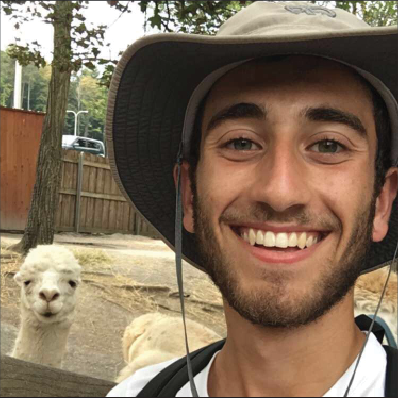
What is your internship and what kind of research will you be doing?
I am working for two scientists at the Woods Hole Research Center (WHRC) in Falmouth, M.A. WHRC is a climate change think tank. Their main goal is to connect science with activism. As a result, they do a lot of hard science research into climate change.
They also implement the research knowledge they gain. This implementation is done through consulting or educating communities, NGOs, and government agencies. I am going to be conducting research on the science side of things.
I will be helping Dr. Brendan Rogers ’03 analyze data related to carbon flux in the arctic boreal ecosystem, focused in Alaska and Canada. Specifically, I will be analyzing early warning signals of tree mortality based on a number of environmental factors such as productivity, temperature, light reflection of snow, etc. In addition, I will be working on a project about the effects of environmental change on the seasonal carbon dioxide exchange.
I will be teaching myself R, a coding language, in preparation for this work. Dr. Natali, another scientist, has a lab full of a backlog of soil samples that need to be analyzed, so my work will depend upon which samples she needs processed first over the summer.
I can expect to do a number of tasks. First, I could be analyzing soil samples from decomposition experiments and measuring them for mass loss over time. I could also be counting the roots that grow into certain soil samples from field experiments. Additionally, I could be doing pH and elemental analysis on soil samples from the Yukon delta. Finally, I could be analyzing permafrost cores. For the first scientists, I will be doing mostly analytical work on a computer.
For the other scientist I will be working in the lab and learning techniques through processing samples. I am excited because my concentration is biology and I love math. Therefore, being able to do work with grounding in biological concepts while also using mathematical techniques will be a good experience for me. The other lab work will be good for general science knowledge and exposure to environmental biology.
What drove you to look for an internship in Falmouth?
I spent my summers in Provincetown, which is also on Cape Cod, so I was familiar with Woods Hole. Also, spending so much time outside and at the beach got me interested in marine biology and environmental science. Woods Hole and Falmouth have five research institutions combined: Woods Hole Oceanographic Institution (WHOI), Marine Biological Laboratory (MBL), WHRC, the National Oceanic and Atmospheric Administration (NOAA), Northeast Fisheries Science Center, and the U.S. Geological Survey. I wanted to go there because it has a large population of prestigious biologists and climate scientists. I also love the beach. Beyond my internship, I will have the opportunity to engage in this community, which covers a vast majority of my interests, and to attend seminars and events at the other research institutions. This will be a good learning and networking opportunity for me in terms of biology, climate science, and marine biology, which are all things I am interested in.
Any advice for those looking for similar internships?
Don’t annoy the people you want to work for, but be persistent. It took me from November to March to secure this internship. You have to commit to calling and emailing relentlessly. Also talk to your professors because many of them could have connections or general ideas for your search.
What is the value in scientific research?
What’s the value in journalism? This is a loaded question. Given the example of WHRC, however, we can see that scientific research is the basis of proper management and protection of the environment. The scientific process is important because it is the basis of technology, which extends beyond industry. Being able to question, test, and implement new ideas in any field is the basis of advancement. Scientific research exemplifies this process.
Are you looking to pursue a career in this field?
I want to get a degree in biology and focus on the environment. One day, I hope to find a way to advance our understanding of climate change and how to limit our impact on the planet.
I do not know, however, what I believe the most effective way to save the planet is or the place where my skills could make the greatest impact. Maybe I won’t end up doing science, but instead will focus on policy. Regardless, I want to pursue a career in biology and I think this internship will help my professional career in the sciences. It will also give me the opportunity to explore other avenues of helping the planet outside of science, such as education or NGO work, which is also done at WHRC.

















